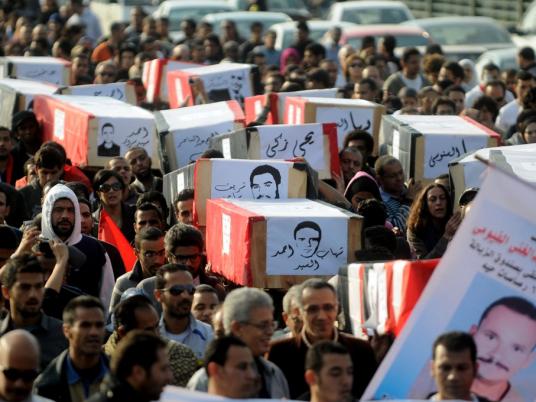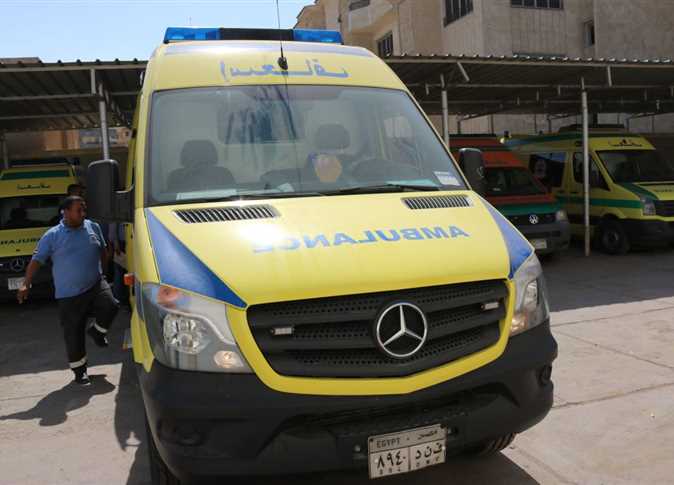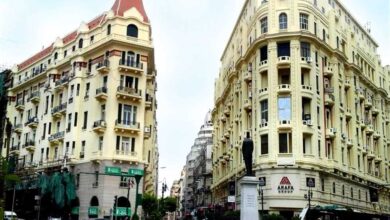
Several of those injured in the January revolution said on Friday afternoon that they will continue their Tahrir Square sit-in despite calls to temporarily suspend it to allow the government to satisfy their demands.
The protesters are asking the ruling Supreme Council of the Armed Forces to hand over power to civilians and to expedite the trials of former regime figures.
They distributed a statement calling for the election of a civilian presidential council for the transitional period, the formation of a revolutionary government to achieve the goals of the revolution, and the immediate release of activists arrested for their opinions and other prisoners in military prisons.
They also called on Egypt’s “honest" judges to speed up the trials of former President Hosni Mubarak and his aides on charges of killing protesters. Mubarak's trial was postponed until a decision is made by a separate court on whether to change the panel of judges presiding over the case.
They also said they reject the election of a parliament that will not have power. Last week more than eight million Egyptians voted in the opening round of the first free vote in six decades. On Friday the head of the High Elections Commission said the turnout was 62 percent, far higher than in the rigged polls under Mubarak's regime.
The protesters' statement also called for bringing those responsible for the recent clashes to trial and for purging the Interior Ministry of corrupt officials. In November, roads around Tahrir witnessed the worst violence since Mubarak was toppled: 42 people were killed in Cairo and elsewhere in when police cracked down on protestors demanding an immediate transfer of power to a civilian government.
Finally, the statement called for appointing a “revolutionary” civilian to the position of Interior Minister in order to re-establish security.
Hundreds of protesters left Tahrir Square after participating in a protest on Friday that was given several titles, including "The Revolution is Continuing” and “The Friday to Honor Martyrs."
Political movements and activists were divided over whether to continue the sit-in after the 25 January Revolution Board of Trustees called for suspending it to re-assess the situation and allow life to get back to normal in Tahrir Square.
Hany Khorshed, a coordinator for the Ahmed Maher Front of the April 6 Youth Movement, said the sit-in will continue until power is transferred to civilians and a national salvation government is formed.




